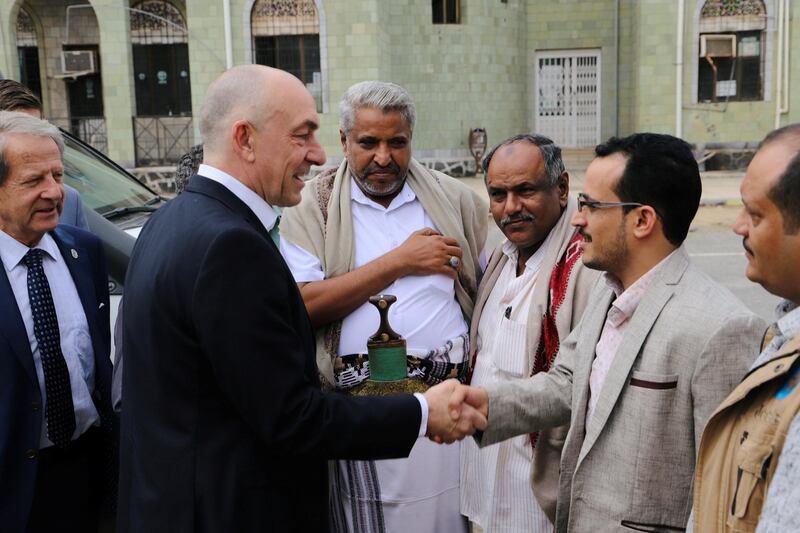"Patience and persistence": those were the defining words from UN special envoy Martin Griffiths in his statement to the UN Security Council, giving a flicker of hope that there is light at the end of the tunnel of the conflict in Yemen, triggered by the Houthi coup over five years ago. "There is a momentum on Yemen," he continued. That momentum is set to be translated into action as troops from both the Houthi rebels and government forces withdraw from Hodeidah in the coming week. Like the political process itself, they will be cautious steps; first, from as little as 100 metres apart to several kilometres away; and finally, to about 30km from the war-ravaged port city.
This is, however, a step in a long process and, as Mr Griffiths is at pains to emphasise, he is “under no illusions about the challenges we face”. He acknowledges deadlines have been missed – the withdrawal, for example, was scheduled to take place more than one month ago and the Houthis have repeatedly stalled on taking part in talks, failing to attend negotiations in Geneva last year and finally coming to the table in Stockholm last December. Those talks have led all parties to this point – not yet at a distance from the cliff edge but certainly no longer peering over the precipice. It is instructive that, unlike UN-led peace processes that have stumbled, the Yemen talks did not become a substitute for real action. They have been integral to engineering both sides to this stage and as Mr Griffiths said, the Saudi-led coalition backing Yemen’s legitimate government has participated in “numerous almost daily meetings” to reach this point. Now, after weeks of constant shuttle diplomacy, is the chance to follow through on promises made in Sweden, for the sake of millions of suffering Yemenis. A prisoner exchange, another of the commitments brokered in Sweden, will be the next measure of progress.
There is, of course, much that could still go wrong. As Anwar Gargash, the UAE's Minister of State for Foreign Affairs, says, it is now crucial that the Houthis' deeds match their words. The rebels have been given an opportunity to demonstrate some political will in moving towards peace. For the future and prosperity of Yemen, they must not squander this chance. Mr Griffiths' conviction that the Yemen conflict is "solvable" is heartening – not least because the alternative for the people of this country is, as he warns, so unthinkable. About 80 per cent of Yemen's population need humanitarian aid. Nearly 10 million are "a step away from famine" and current resources are only expected to last six weeks. If the Stockholm agreement is now translated into real progress on the ground, Yemen will have taken a positive step towards a political resolution and its long-suffering people can begin to dare to hope.





